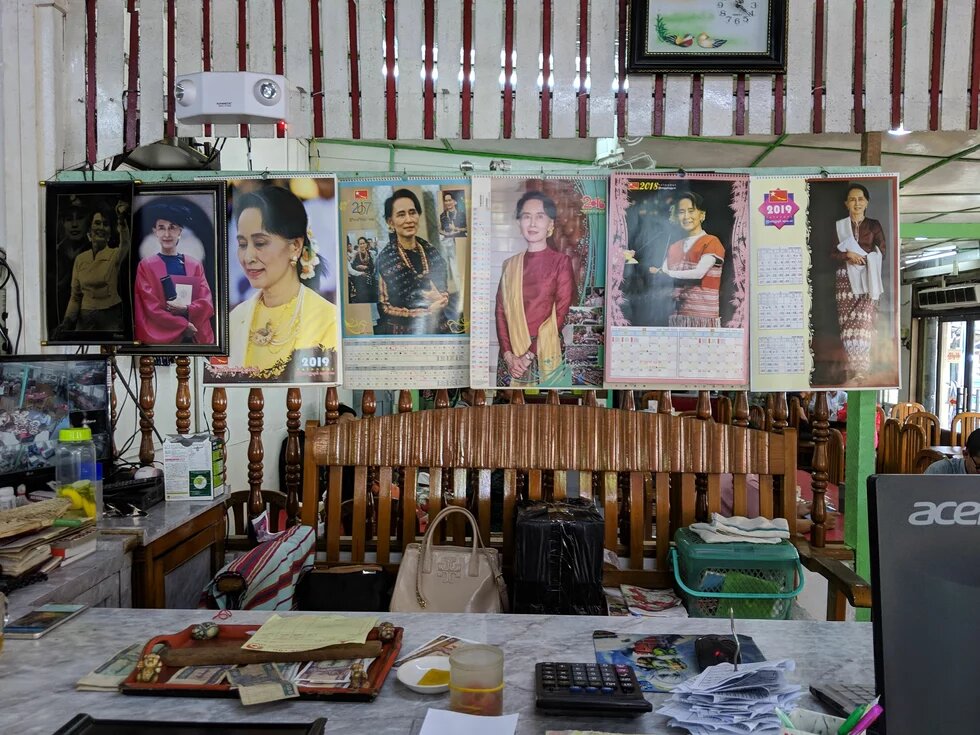
This week, Myanmar’s State Councillor Aung San Suu Kyi is visiting the Czech Republic and Hungary. The trip comes on the occasion of the opening of the new Myanmar Embassy in Prague, and the State Councillor is also expected to hold talks with the Czech Republic’s Prime Minister Andrej Babiš and senior government officials in both countries.
This is Aung San Suu Kyi’s first visit to Europe after the mass expulsion and flight of the Muslim Rohingya community from Myanmar’s Rakhine State starting from August 2017. UN institutions describe these events as “ethnic cleansing” and accuse Myanmar military leaders of “genocidal intent”.
The crisis continues: Today, about one million Rohingya live in refugee camps in Bangladesh. Despite declarations to the contrary from all sides including even Myanmar’s government, their return to their home areas appears ever less realistic. A few hundred thousand Rohingya continue to live in Myanmar. But they are severely discriminated against as citizens of lesser status at best, or even viewed as non-citizens. They are severely restricted in their movement and cannot work or study in Myanmar’s major cities.
Even though she is the head of an elected government since April 2016, State Councillor Aung San Suu Kyi does not carry the primary responsibility for this drama. It is Myanmar’s military (the “Tatmadaw”) that conducts operations on its own account, outside civilian government control. The constitution even guarantees three core ministries and a quota of 25% of all parliamentary seats for the Tatmadaw.
Still, the civilian government under Aung San Suu Kyi is not just failing to address the plight of the Rohingya. The State Councillor has even largely refused to acknowledge that large-scale, systematic violence and human rights violations have taken place at all. In this respect, her views are aligned with those of her voters, many of whom view the Rohingya as “illegal aliens” and do not believe that atrocities took place on any large scale.
While media or researchers have had little direct access to the areas worst hit by violence and thus many details remain unclear, the massive violence of the military against the Rohingya and other ethnic groups in Myanmar’s conflict areas has been documented beyond reasonable doubt. Sanctions against senior Tatmadaw officers are in force; the International Criminal Court has started formal investigations against them.
Aung San Suu Kyi had been an icon of democratic politics of Burma/Myanmar since 1988. With notable support of then Czechoslovakia’s President Václav Havel she received the Nobel Peace Prize in 1991. She spent years under house arrest, until the country opened up politically after 2011.
Thus, it came as a shock for her international supporters when, as State Councillor, Aung San Suu Kyi failed to speak out against the Tatmadaw’s violence – and that she has even condoned the jailing of local journalists who reported about such atrocities.
Her reasons to act this way are subject to many speculations. Surely, the power balance with the military surely plays a role here, but many also think that she truly believes to act in the best interest of a nation that feels misunderstood by the West. And of course, she also needs to win another general election scheduled for late 2020 and may not be willing to risk electoral support by opening up additional controversies with the military and right wing nationalist forces.
For now, economic relationships and development cooperation between Myanmar and Europe (as well as the U.S.) continue as if nothing serious has happened. However, on a fundamental level, trust between Myanmar and the West is seriously undermined, with little, if any, meaningful dialogue on human rights violations and dangers to democracy. In international diplomacy, Myanmar finds itself increasingly isolated. China is left as Myanmar’s major protector, and it is likely to extract a political price for its continued support.
Under these circumstances, it is not surprising that Aung San Suu Kyi’s first visit to Europe since two years does not lead her to Western European capitals where she may have had to face protests and condemnation by disenchanted former supporters, but to Prague and Budapest.
Myanmar surely needs and deserves support for bringing about a difficult political transition and sustainable economic development. Any talk of general economic sanctions is entirely counterproductive. But the unwillingness of Aung San Suu Kyi and her government to acknowledge and address serious human rights violations just cannot be accepted in a “business as usual” manner.
Thus, as Aung San Suu Kyi comes to Europe, tough questions need to be asked: How does the Myanmar government intend to create an environment that allows for a safe return of the Rohingya refugees? How is it going to bring the peace process forward, in Rakhine and other parts of the country? And how it will provide safety and freedom of expression for journalists and non-violent political actors?


